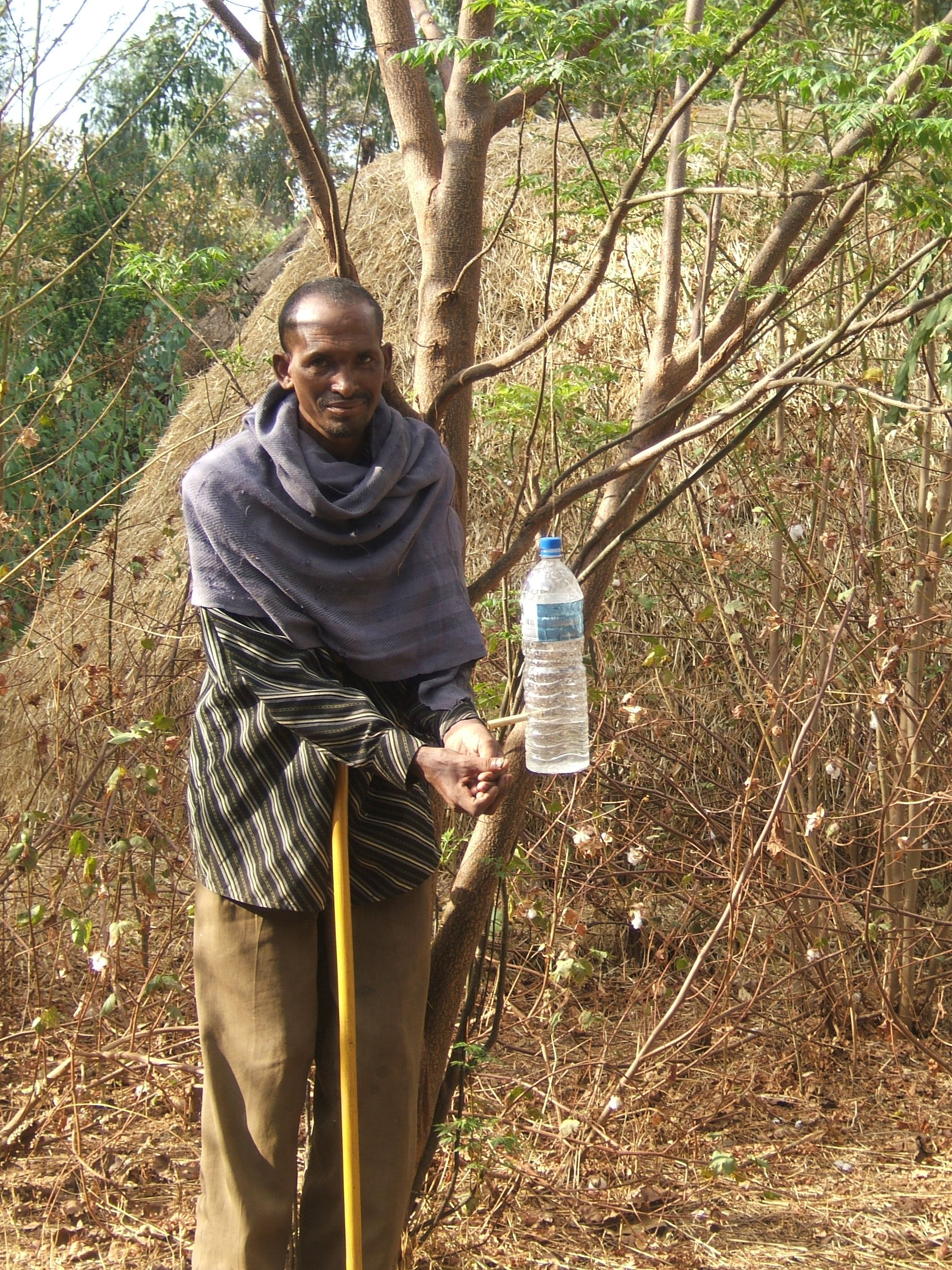WHY WASH MATTERS TO PEOPLE LIVING WITH HIV
|

A person living with HIV/AIDS uses a tippy tap.
You may think that water, sanitation and hygiene (WASH) is superfluous when addressing the needs of people living with HIV, but actually it is a critically important focus that has only recently gained recognition.
Many life-threatening opportunistic infections are caused by exposure to unsafe drinking water, inadequate sanitation, and poor hygiene. Diarrhea is a very common symptom that affects 90 percent of people living with HIV and results in significant morbidity and mortality. Isn't it ironic to wash down life-saving antiretroviral drugs with germ-laden water that causes diarrhea and reduces the drug's effectiveness because it is not absorbed? Diarrheal disease also reduces the absorption of essential nutrients, increasing the risk of malnutrition and further exacerbating the impact of HIV on both children and adults.
Several countries with support from USAID are now embracing issues of WASH and HIV integration. Introducing WASH into an HIV-prevalent community also helps to reduce stigma because improving drinking water, sanitation, and hygiene practices makes everyone in the community healthier!
On a recent trip to Kenya to support a USAID/WASH and HIV integration program, I met a group of women widowed caring for children orphaned by HIV in Coast Province who decided to help each other build household latrines. The soil was rocky and many families said digging a latrine was nearly impossible in the rocky, dry soil. But these formidable women pooled their resources and made it happen. As one woman said, “If people can dig holes to bury people, they can do it for latrines.” Starting with the household most in need, they dug the hole, purchased the materials to support the pit structure and constructed the superstructure around the pit for privacy. When I visited almost half the women had latrines in their compound.
In Ethiopia a home-based care worker who had been trained in WASH-HIV integration activities took me around the community to see the progress they had made. I saw water-saving hand washing devices called tippy taps peeking through the bushes all around the community…even in households that were not served by these volunteers. One mother proudly showed me her latrine that had a strap the weak people of the household could hold onto to help them use the latrine. Her children demonstrated how he washed his hands with the tippy tap after coming out and the mother said that it reminds her children to wash their hands when they exit the latrine.
In Nyanza Province, Kenya an HIV positive woman said she was just waiting to rebuild her latrine after it collapsed because she has seen how much less diarrhea she and her family has suffered since building and using the latrine and drinking water treated with hypochlorite solution. She no longer drinks water directly from the river and she and her family take water from home to drink when they visit friends or go to school or work.
On this World AIDS Day, let us acknowledge the vital role safe water and proper hygiene have in keeping people living with HIV healthy and productive, and together let us advocate to include water, sanitation, and hygiene activities into a range of HIV programs: care and support, prevention of mother-to-child transmission, orphans and vulnerable children, and counseling and testing whenever possible.
-- Renuka Bery, WASH-HIV Integration Advisor WASHplus Project at FHI360
For more information:
-- Learn more about WASHplus and other projects that integrate services to improve health in "Join up, Scale up: How integration can defeat poverty and disease." (PDF, 760 KB)
-- Help us send the message to donors and policymakers that integration is key! Sign up to receive Health/WASH Network updates on the latest opportunities for communications and advocacy.
Photo credits: Renuka Bery, FHI360














